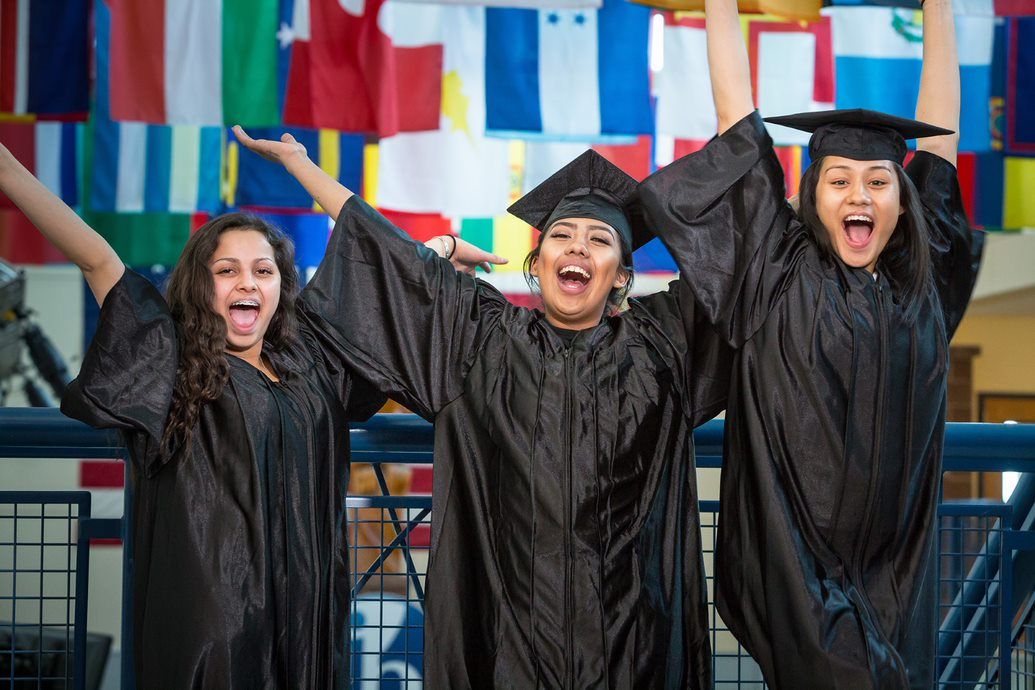By Amelia Federico Soft skills. Durable skills. Essential skills. Core skills. Whatever you call them,…

Linking Reenrollment with Post Secondary Success
Young people in Colorado that have left or dropped out of school often do so because they are unable to see the benefit of a high school diploma in their present or future. The primary goal of CYC’s Reengagement program is to get young people back into school and on track to receive their high school diploma or GED.
For Reengagement Specialists at Colorado Youth for a Change, the work with students who have dropped out extends far beyond just helping them find the right school fit. Staff members also provide students with individualized supports, including coaching them through the process of post-secondary planning, both for college education and careers.
By focusing on a student’s future goals and post-secondary plans, Reengagement Specialists are able to highlight the importance of a high school diploma. Once students start talking about their plans for the future, the keystone to the plan is often is a high school diploma. This opens the door for them to pursue a post-secondary degree and their many dreams for the future.
Reengagement Specialists assess individual student strengths, interests, and needs, and guide them in learning about post-secondary education and career options to pursue. This can include concurrent enrollment in college degree and certificate programs, as well as planning for enrollment into post-secondary programs after completing high school. Specialists also help students with career exploration, career-readiness skills, resumes, college applications, and interview preparation.
Reenrollment in a Time of Crisis
A key piece of support and recovery from the COVID-19 pandemic is education, and young people are feeling the economic burden too. Contact with disconnected and out-of-school youth has significantly increased in the Reengagement program since the pandemic began, as has the interest among young people in going back to school. CYC anticipates that this trend will continue for some time as our community recovers.
Reengagement Specialists are working hard to stay connected to students who are interested in returning to school in the 2020-21 school year. These staff members will continue to support students with education plans and post-secondary planning during the spring and summer months, while also continuing to serve their current caseload of students who reenrolled in school during the 2019-20 school year.
Our most vulnerable students are some of the most negatively impacted by the COVID-19 crisis and the transition to remote learning. Reengagement Specialists will continue to support approximately 180 students on their current caseloads with one-on-one academic and remote learning support and case management using phone calls, texts, and online platforms, ensuring that they stay engaged and on track during school closures to earn their high school diploma. Often, these students do not have access to the tools, skills, and technology required to succeed in a remote learning environment, which makes the individualized support provided by the Reengagement team that much more vital. Many of these students are also facing additional non-academic challenges and the Reengagement team is helping them to navigate financial and family challenges, connect them to basic needs and technology, and provide social emotional supports critical to their success.
The current COVID-19 pandemic poses a serious threat to the academic success of students who were already considered at risk. Transitioning to remote learning is putting disadvantaged students even further behind their more affluent peers and pushing school districts to ensure their students have equitable education and opportunities is more important than ever. Alice Albright, CEO at the Global Partnership for Education, raises the question of what this pandemic means for our world’s poorest and most vulnerable families. With many hyper-focused on the larger economic impact, organizations like Colorado Youth for a Change are working within local communities to serve as lifelines for the most vulnerable students, ensuring that they have the support needed to continue to pursue their academic and career goals.
